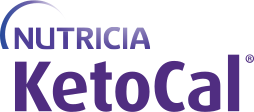If your child is on a ketogenic diet for the dietary management of drug-resistant epilepsy, you will soon find that you are the expert. It is safe to assume that most people are unfamiliar with the medical ketogenic diet. Sadly, this would also include many healthcare providers. It is true that more and more people are hearing about diet and understanding the general concept, but oftentimes families feel that they are the ones who are teaching other healthcare teams (besides their neurologist) the intricate details of the diet.
Have you gone to your local pediatrician, dentist, or another healthcare team within the same hospital that manages your child’s care just to find out that nobody else knows what to do about the ketogenic diet? Here are a few things to consider when your child has an appointment with another health professional outside of the neurologist’s office.
Share Information
Leading up to the planned admission date for your child’s ketogenic diet initiation, you can prepare your other doctors for this major change in your child’s life. Share diet information that you receive from your neurologist and dietitian with your pediatrician and any other doctors or medical teams that they see.
Have the doctor’s office add “dextrose” as an allergy in your child’s electronic chart. This will help flag medications prescribed to your child if it is in liquid form and not allowed on the ketogenic diet. Doctors’ offices usually review allergies with you at the beginning of every visit. This is a good time to reiterate that your child is following a special diet.
New Foods
When you are using a ketogenic diet for epilepsy management, you get a free pass to use the same meals and snacks repeatedly. Reminding the pediatrician and therapists of these things will help them to remember the specifics of the diet. They are used to encouraging their patients to try new foods, so give them a little leeway if you have to repeat yourself to them.
Repeat, Repeat & Repeat
Remembering the special considerations that need to be made in your child’s care while on the ketogenic diet can be hard to remember. Your repetitiveness can only be helpful to avoid errors.
Be Specific
If your keto kid needs a specific toothpaste at the dentist office or an exact consistency of liquids with the speech therapist, then help them out by offering a sample of the product your child needs or a list of acceptable options for use in that office. The more you “spoon feed” that professional information about what your child needs, the more likely you will have a successful visit that encourages compliance on the diet. It makes for a more pleasant experience in that office, and you can focus on why you are there instead of focusing on the diet for so long.
Be Gentle and Kind
You have heard the old saying: You can catch more bees with honey than with vinegar. Repeating yourself, correcting people and shielding your children from unwanted foods is exhausting. Showing appreciation to your health professionals will go a long way.
Share Resources
There are many great resources for parents and healthcare providers for the ketogenic diet. Here are a few great resources to send others to:
- The Charlie Foundation
- The International Neurological Ketogenic Diet Society
- Matthew’s Friends
- Nutricia KetoCal site
In addition to the neurology team, keto kids may be cared for by pediatricians, emergency room professionals, dentists, community hospitals, surgeons, gastroenterologists, nurses, therapists, and the list goes on.
We are pleased to share today’s guest blog post written by ketogenic dietitian and Nutricia keto ambassador Robyn Blackford, RDN, LDN. Thanks Robyn!
Brought to you by Nutricia North America
Always consult with your ketogenic clinician prior to making any changes to your ketogenic diet or condition management.
©Nutricia North America 2025

